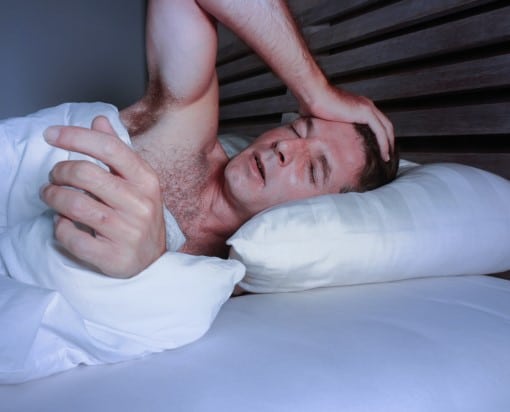
What to do after a bad CPAP night (or stretch)
Learn how to survive, recover, and get your therapy back on track
By Jason Wooden, PhD | May 26, 2025
Even champion CPAP users will have a bad night or go through a rough stretch of nights for various reasons whether it’s something going on with your setup or with you. What’s most important is to do everything you can to avoid making the day worse and your nights better.
In this article, we talk about:
What to keep in mind after a bad CPAP night
First off, we’ve all been there.
Even champion CPAP users will occasionally have a bad night or go through a stretch of bad nights.
I know this from personal experience.
You wake up feeling exhausted and find yourself struggling throughout the day.
I’ve been on CPAP since 2017 and for the most part it has done right by me. However, I do continue to have occasional bad nights where I know something has gone horribly wrong and that I’m in store for a long grueling day.
Or stretches where something is off and it just doesn’t seem to be my week for CPAP…
Sounds familiar?
Online in various forums you’ll find people sharing their CPAP bad night experiences like this individual on reddit talking about how they woke up feeling exhausted.
Signs of CPAP therapy gone wrong:
- More frequent wake ups during the night
- Waking up feeling like you’ve haven’t slept at all
- Something seemed different with your machine
- Sinus congestion, infections, dry mouth, and bloating
- Snoring complaints from others
- Headaches
- Daytime fatigue
As frustrating as things are, it’s important to do whatever you can to keep from making a bad situation worse. It’s all too easy to get into a downward spiral poor sleep, fatigue, frustration, anxiety, and hopelessness.
Unfortunately, too many patients stop using their CPAP machines within the first year of treatment. If you abandon CPAP, you want it to be for the right reason like you no longer need it.
(I have a relative that’s stopped using their CPAP machine for positive reasons, but that’s a story for another day!)
That makes it super important have a plan for what to do when things go wrong.
Let’s take an honest look at what you can do after a bad CPAP night to make it through the day and to get your therapy back on track.
What to do after a bad CPAP night (or bad stretch of nights)
So, you’ve had a bad CPAP night and woke up feeling like crap?
Again, you have TWO goals.
First, do what you can to make it through the day without making things any more stressful than they already are. You don’t want to get into a downward spiral.
Secondly, do what you can to improve your chances for a more restful night on CPAP.
Depending on what went, there’s a variety of things that can make a difference:

#1
Acceptance
Take a deep breath, it is what it is. Acceptance helps you manage your emotions, reduce negative feelings which can spiral you downward, and look at things with a clearer head.
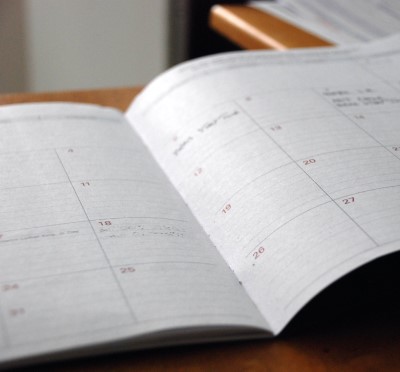
#2
Adjust your expectations for the day
It’s importance to be realistic and scale back your ambitions. You’re going to have to prioritize.
What do you really have to get done today and what can wait?
This may require cutting and rescheduling commitments. You may also need to switch to less demanding tasks and activities.
Trying to do tasks that demand intense focus and sustained complex thinking is a recipe for frustration. From personal experience, it can also come back to bite you as you’re more likely to mess something up.
Basically, you want to do what you can within the limits of the day. Trying to drive 300 miles when there’s only a quarter tank of gas is not realistic.
It took me a while to realize when I’m overambitious after a bad night of CPAP I get even more frustrated as I let myself and others down.
Some stuff can and should wait for a better day.
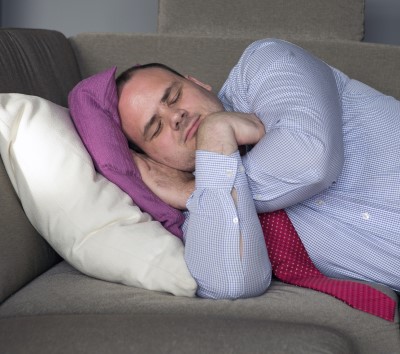
#3
Take a SHORT nap
When you’re dragging, a quick nap done right can take the edge off of things and make the day more manageable. This does wonders for me when I’m going through a bad CPAP stretch.
Some napping tips:
- Keep it under 30 minutes to avoid waking up groggy
- Nap earlier in the day to avoid bedtime insomnia
- Nap in a restful space (quiet, dark, and a comfortable temperature)
- Hook up to your CPAP machine for a more restful nap
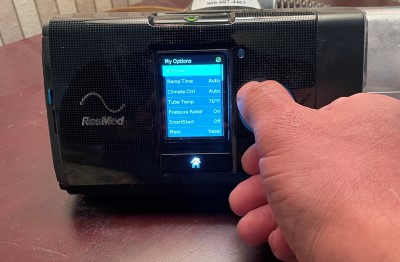
#4
Check your CPAP setup
Was everything set up correctly and functioning correctly?
First off, check your CPAP machine to see how well it managed your sleep apnea during the night. machines have a screen that gives you a readout on this.
If it gives you a high sleep apnea score, something went wrong.
Another tell for me is when my spouse complains of snoring.
Common CPAP fails to check for:
- Was everything hooked up correctly?
- Were you wearing your mask correctly?
- Did it come off during the night?
- Was there an air leak in the system? – Check for error messages
- Were the air pressure settings comfortable for you?
- Did you wake up with a dry mouth or nose? – Make sure the mask was sealed properly and the humidifier was on
- Did you forget to replace items that wear out?
- Are you regularly cleaning your machine? – A dirty setup may give you an uncomfortable skin rash or make you sick in other ways

#5
Contact tech support
Remedying some of the things that can go wrong with a CPAP setup may require professional help. Be sure to reach out for help from a support technician.
They can guide you through making adjustments, the air pressure settings, and even finding alternative accessories that may work better for you.
They can also run checks to make sure your machine is operating correctly. I once had an issue with a machine cutting off during the night and had to bring it in to make sure the power cord was functioning correctly.

#6
Get back to basics
Getting sleep is hard enough if you have sleep apnea. It’s important you don’t do anything that can make sleep even harder.
Make sure you’re following the basic rules that make sleep easier:
- Wake up and go to bed at the same time every day
Exercise - Avoid large meals
- Avoid alcohol, caffeine, and other stimulants before bed (worsens sleep apnea too!)
- Maintain a regular bedtime routine
- Avoid bright electronic screens at night (TVs, tablets, smartphones)
- Unplug from social media at bedtime
- Keep your bedroom dark, cool, quiet, & relaxing

#7
Check for other health issues
It’s not uncommon for some health issues to make CPAP therapy more challenging. The list includes allergies, skin irritation or infection, respiratory issues like asthma, or even a recent surgery.
If this is the case, talk to your doctor about possible remedies.
#7
Check for health issues that can make CPAP harder
It’s not uncommon for some health issues to make CPAP therapy more challenging. The list includes allergies, skin irritations or infections, respiratory issues like asthma, or even a recent surgery.
If this is the case, talk to your doctor about possible remedies.
What to do if it keeps happening
If bad CPAP nights have become a fact of life for you instead of an occasional issue, you can’t accept this as the status quo.
There’s just too much at stake given the serious downsides of untreated sleep apnea.
Yes, sleep apnea can turn you into a sleep-deprived zombie, strain relationships, and suck the joy out of living. It can also increase your risk for serious life-threatening health complications like obesity, diabetes, and cardiovascular disease.
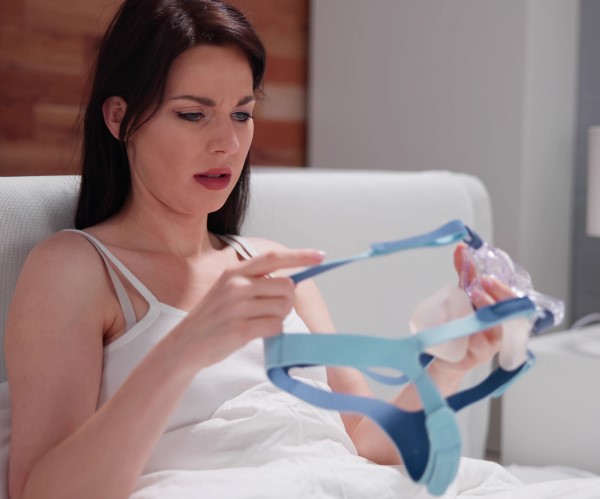
If this is your situation, go back to your doctor or sleep specialist. There could be underlying issues affecting your sleep whether it’s chronic pain or challenges like CPAP anxiety.
It could also mean it’s time to consider an alternative to CPAP. While CPAP therapy is one of the most effective treatments, it’s not the only game in town.
There are now more sleep apnea treatments than ever before.
There’s definitely hope.
So, be sure to see a doctor sooner rather than later.
Connect with us:
About Us
Better Sleep Simplified® was founded as a place for you to get clear and well-researched information.
Our goal is to make sure you know about your options so that you take action sooner rather than later.
Check us out on YouTube:
Watch and Learn
Helpful sleep tips, interesting sleep facts and statistics you want to know about
Affiliate Disclosure
This site is a participant in the Amazon Services LLC Associates Program and other affiliate advertising programs designed to provide a means for sites to earn advertising fees by advertising and linking to them.
Important: BetterSleepSimplified.com is for informational purposes only and is not intended or implied to be a substitute for professional medical advice, diagnosis, or treatment. Always consult a physician for sleep and health concerns. See additional information.
